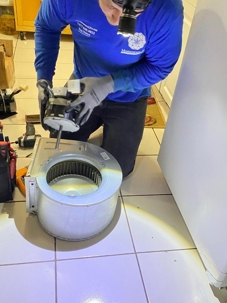The sweltering summer heat can be unbearable without a reliable air conditioning system. Finding a trustworthy repair service becomes a top priority when your AC unit starts acting up. However, with countless options available, it can be overwhelming to choose the right one. This guide will equip you with the essential knowledge to select a dependable air conditioning repair service that caters to your needs.
Understanding Your AC System: A Foundation for Informed Decisions
Before diving into the world of repair services, it’s crucial to have a basic understanding of your air conditioning system. This knowledge will empower you to communicate effectively with technicians and make informed repair decisions.
- Types of Air Conditioners: Familiarize yourself with the different types of AC units, such as central air conditioners, window units, and ductless mini-splits. Each type has its unique features and potential issues.
- Common AC Problems: Understand the most common problems that AC units encounter, including refrigerant leaks, compressor failures, electrical issues, and clogged filters. This will help you identify the root cause of your problem and communicate it accurately to the repair technician.
Key Factors to Consider When Choosing a Repair Service
When selecting an air conditioning repair service, several key factors should be taken into account:
- Licensing and Certification: Ensure the company and its technicians are licensed and certified by relevant authorities. This guarantees they meet industry standards and have the expertise to handle AC repairs.
- Experience and Reputation: Look for a company with a proven track record of providing quality air conditioning services. Check online reviews and testimonials, and ask for referrals from friends or neighbors.
- Insurance: Verify that the company is fully insured to protect you from any potential liability in case of accidents or property damage during the repair process.
- Availability and Response Time: Consider the company’s availability, especially during peak seasons when demand for AC repairs is high. A prompt response time can be crucial when your AC is malfunctioning.
- Pricing and Estimates: Obtain detailed estimates from multiple companies to compare pricing and services. Be wary of excessively low bids, which may indicate subpar artistry or hidden costs.
- Warranty and Guarantees: Inquire about the company’s warranty policies for parts and labor. A reputable service provider will offer guarantees to ensure customer satisfaction.
The Importance of Regular Maintenance
Preventive maintenance is critical to prolonging the lifespan of your air conditioning system and preventing costly repairs. Consider the following maintenance tips:
- Change Air Filters Regularly: Dirty air filters restrict airflow and reduce efficiency. Replace them according to the manufacturer’s recommendations or as needed.
- Schedule Annual Tune-Ups: Professional technicians can inspect your AC unit, clean components, and identify potential issues before escalating.
- Keep the Outdoor Unit Clear: Remove debris, such as leaves and grass clippings, from around the outdoor unit to ensure proper airflow.
- Address Minor Issues Promptly: Don’t ignore small problems, as they can worsen over time. Address them promptly to avoid more extensive repairs.
The Importance of Emergency AC Repair Services
While regular maintenance can help prevent many AC problems, unexpected breakdowns can still occur. A reliable emergency repair service is essential to address urgent issues promptly. Look for a company that offers 24/7 availability and guarantees a quick response time, especially during peak seasons.
When to Call for Emergency AC Repair:
- Complete Loss of Cooling: If your AC unit stops working, it’s a clear sign of an emergency.
- Unusual Noises: Strange sounds, such as grinding, banging, or hissing, could indicate a severe problem that requires immediate attention.
- Leaking Refrigerant: Refrigerant leaks can cause damage to your AC unit and pose environmental risks. If you notice a refrigerant leak, contact a professional immediately.
- Electrical Problems: Electrical issues, such as tripped breakers or faulty wiring, can be dangerous. Never attempt to repair electrical problems yourself; call a qualified technician.
Choosing the Right Emergency Repair Service
When selecting an emergency repair service, consider the following factors:
- Reputation for Emergency Response: Look for a company with a proven track record of handling emergency AC repairs efficiently and effectively.
- Availability and Response Time: Ensure that the company offers 24/7 emergency services and can dispatch a technician promptly.
- Emergency Pricing: Some companies may charge additional fees for emergency services. Inquire about their pricing policies upfront to avoid surprises.
Additional Tips for Air Conditioning Care
- Energy Efficiency: Consider upgrading to a more energy-efficient AC unit to reduce energy consumption and save money on utility bills.
- Smart Thermostats: Install a smart thermostat to automate temperature control and optimize energy usage.
- Shade Your Outdoor Unit: Planting trees or installing a shade cover can help protect your outdoor unit from direct sunlight and improve its efficiency.
- Regular Inspections: Even if your AC is functioning correctly, it’s a good idea to schedule regular inspections to identify potential issues before they become significant problems.
Conclusion
Choosing an exemplary air conditioning repair service can significantly impact your comfort and wallet. By understanding your AC system, considering key factors when selecting a repair company, and prioritizing regular maintenance, you can ensure that your air conditioner operates efficiently and reliably for years. Remember, investing in quality repair services is an investment in your overall well-being and peace of mind.
FAQs
- How often should I change my air conditioner filter?
The frequency of filter changes depends on factors such as the type of filter, the size of your home, and the number of occupants. Generally, it’s recommended to change filters every one to three months. - What are the signs that my air conditioner needs repair?
Some common signs include strange noises, weak airflow, unusual odors, high energy bills, and frequent cycling on and off. - Can I repair my air conditioner myself?
While some minor issues can be addressed with DIY solutions, hiring a professional technician for significant repairs or complex problems is generally recommended. - How can I prevent mold growth in my air conditioning system?
Regularly change air filters, keep the outdoor unit clean, and ensure proper drainage to prevent moisture buildup and mold growth. - What is the average lifespan of an air conditioner?
The lifespan of an air conditioner can vary depending on factors such as maintenance, usage, and climate. A well-maintained AC unit can last between 10 and 15 years with proper care.

